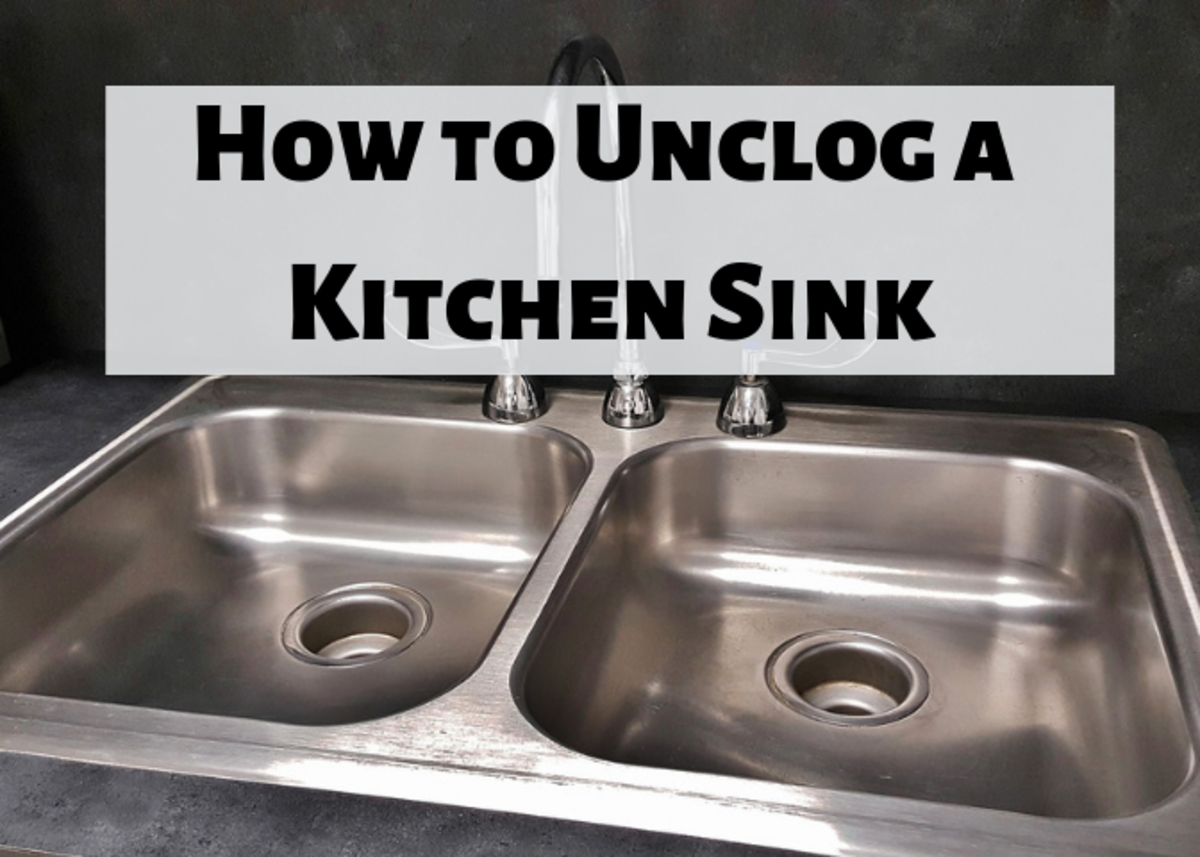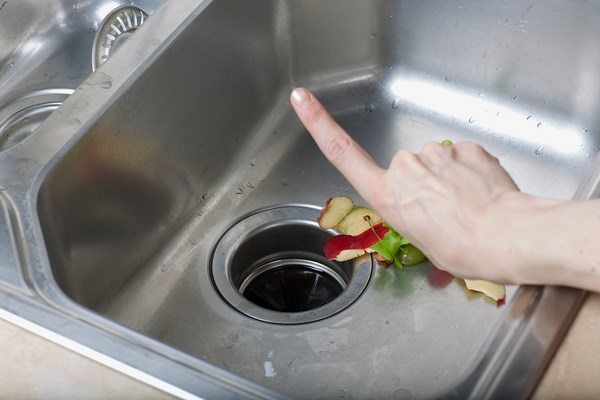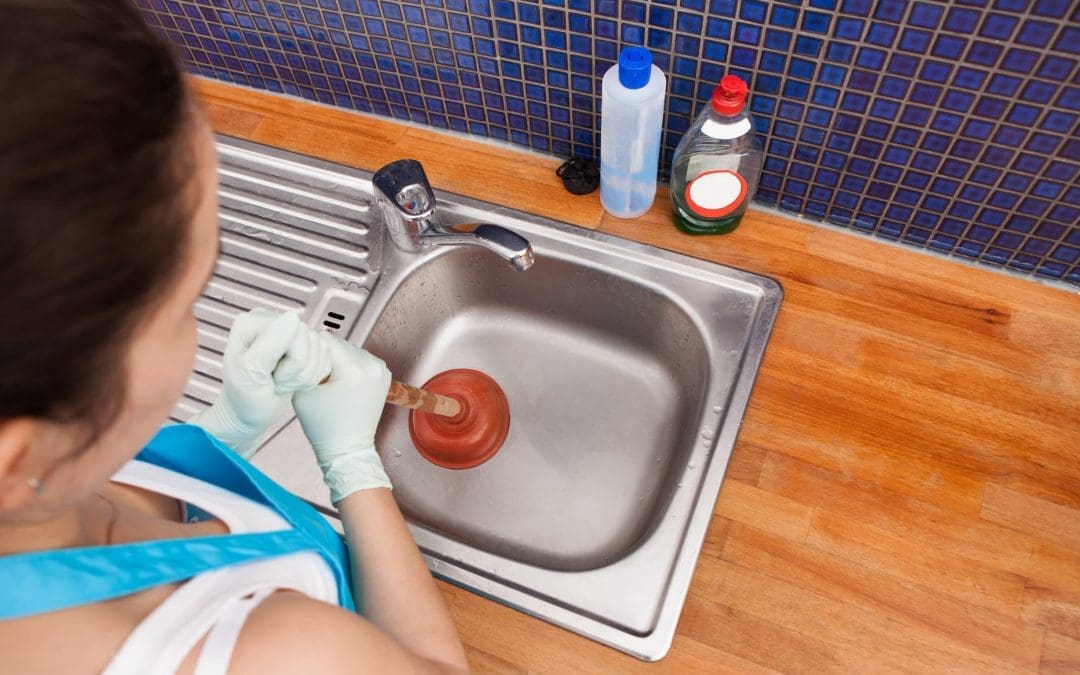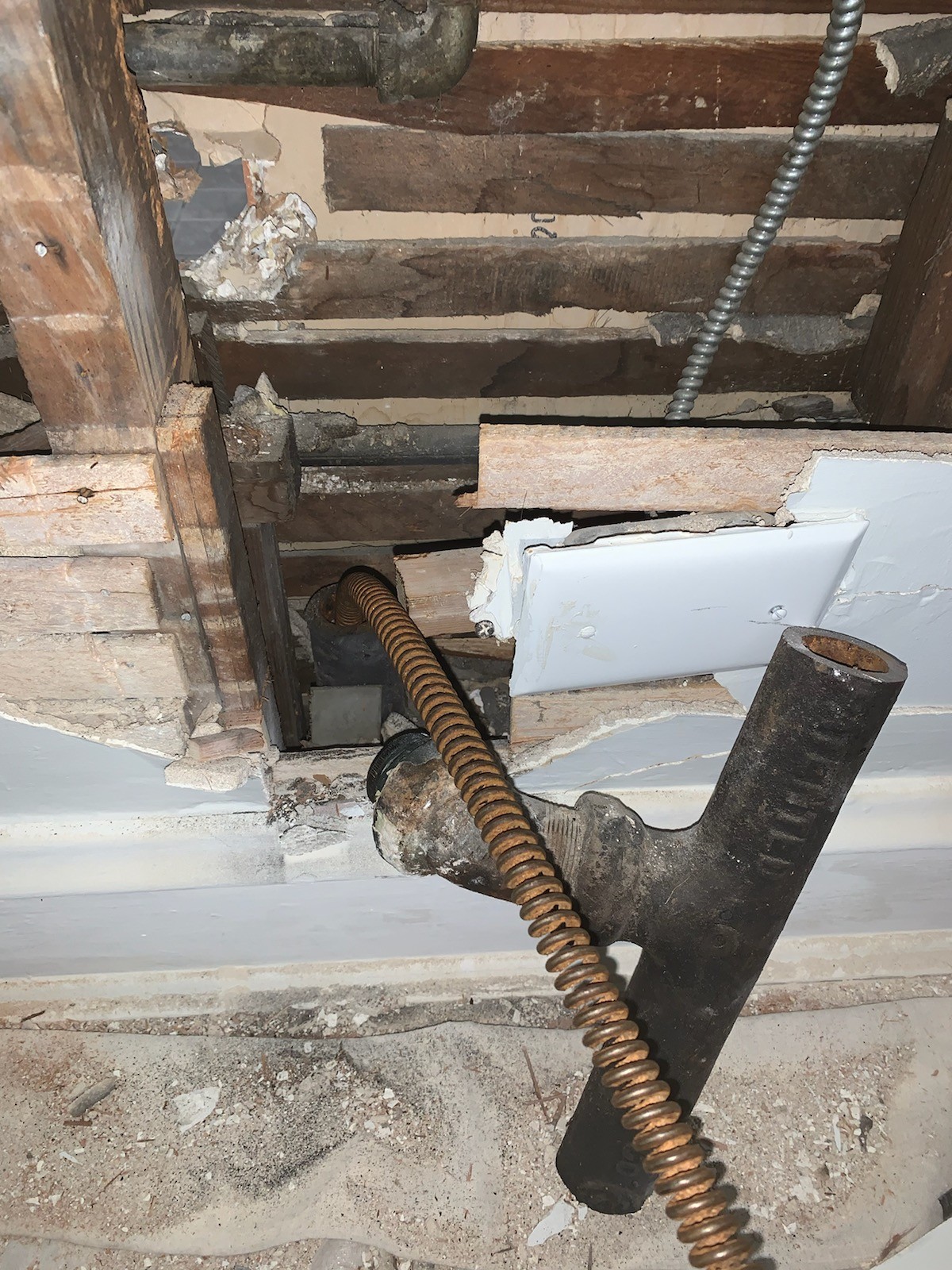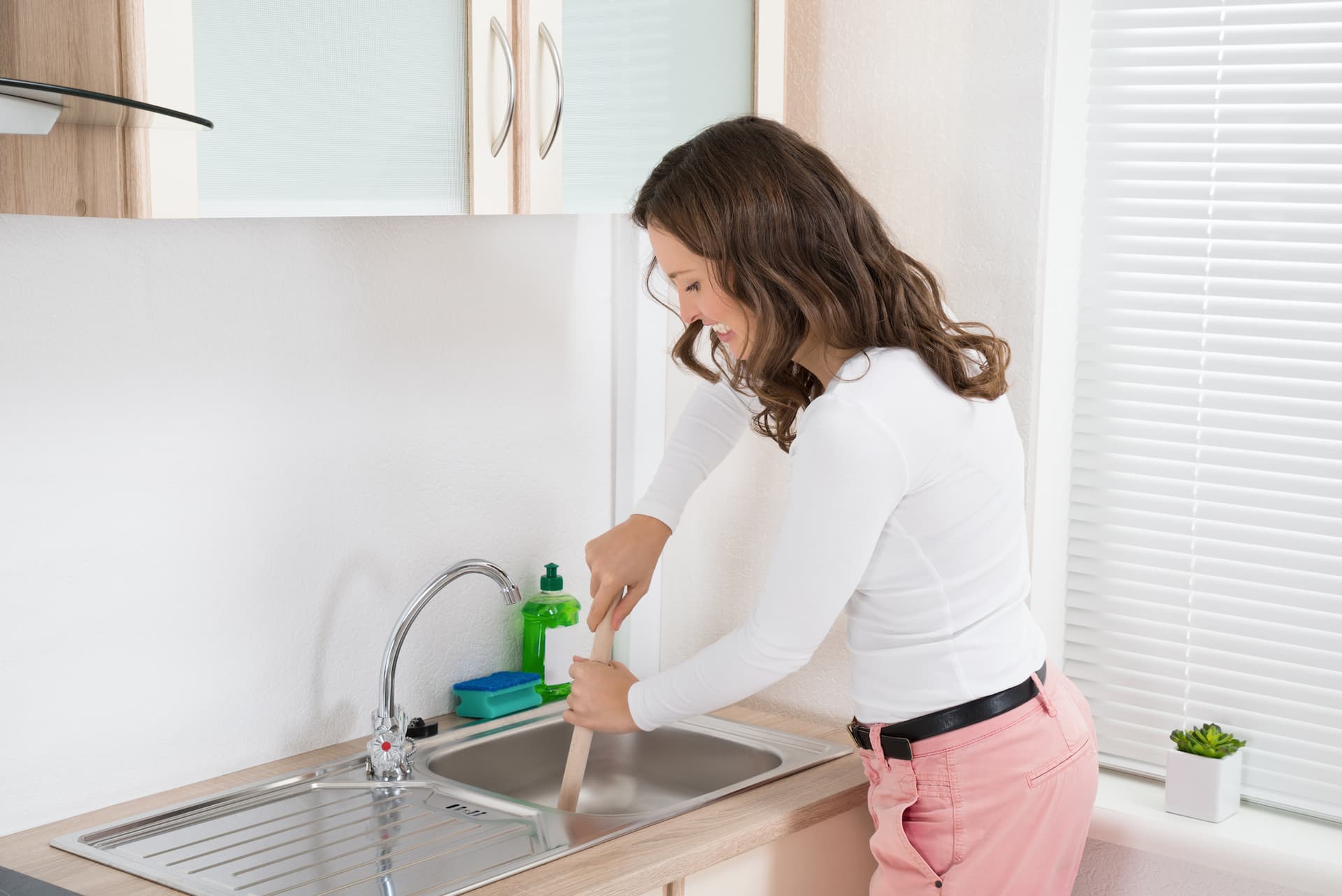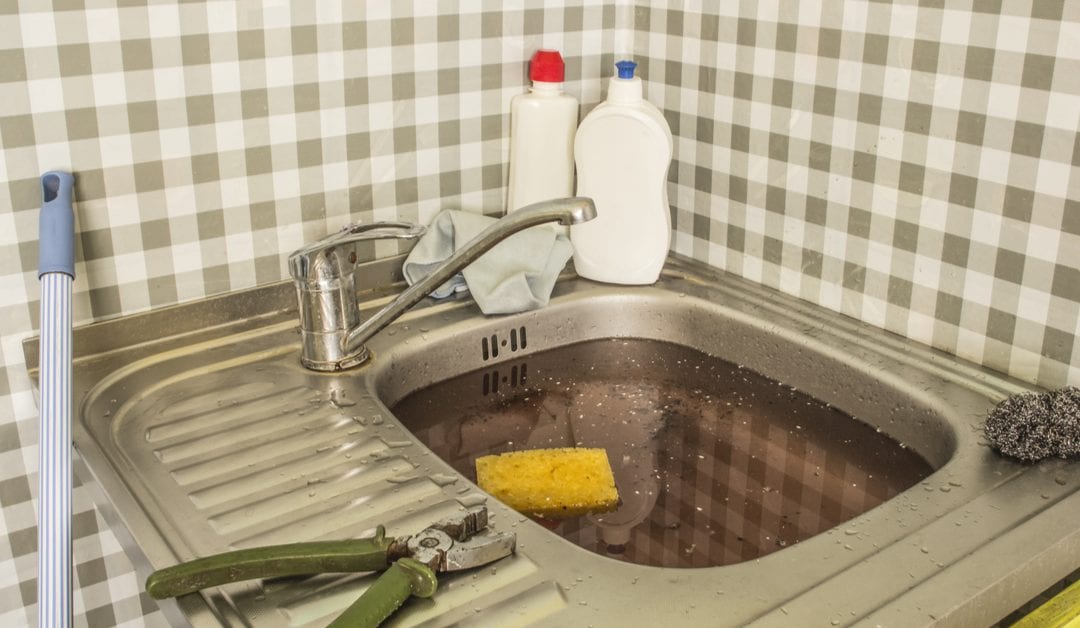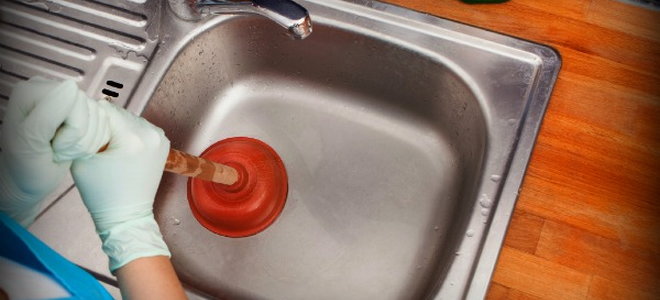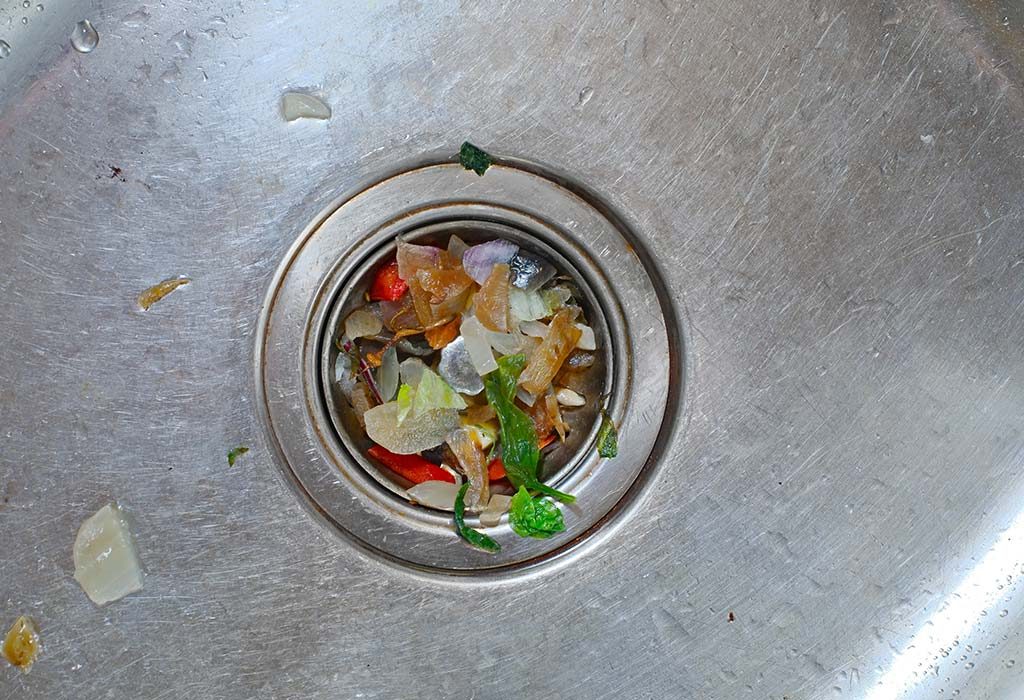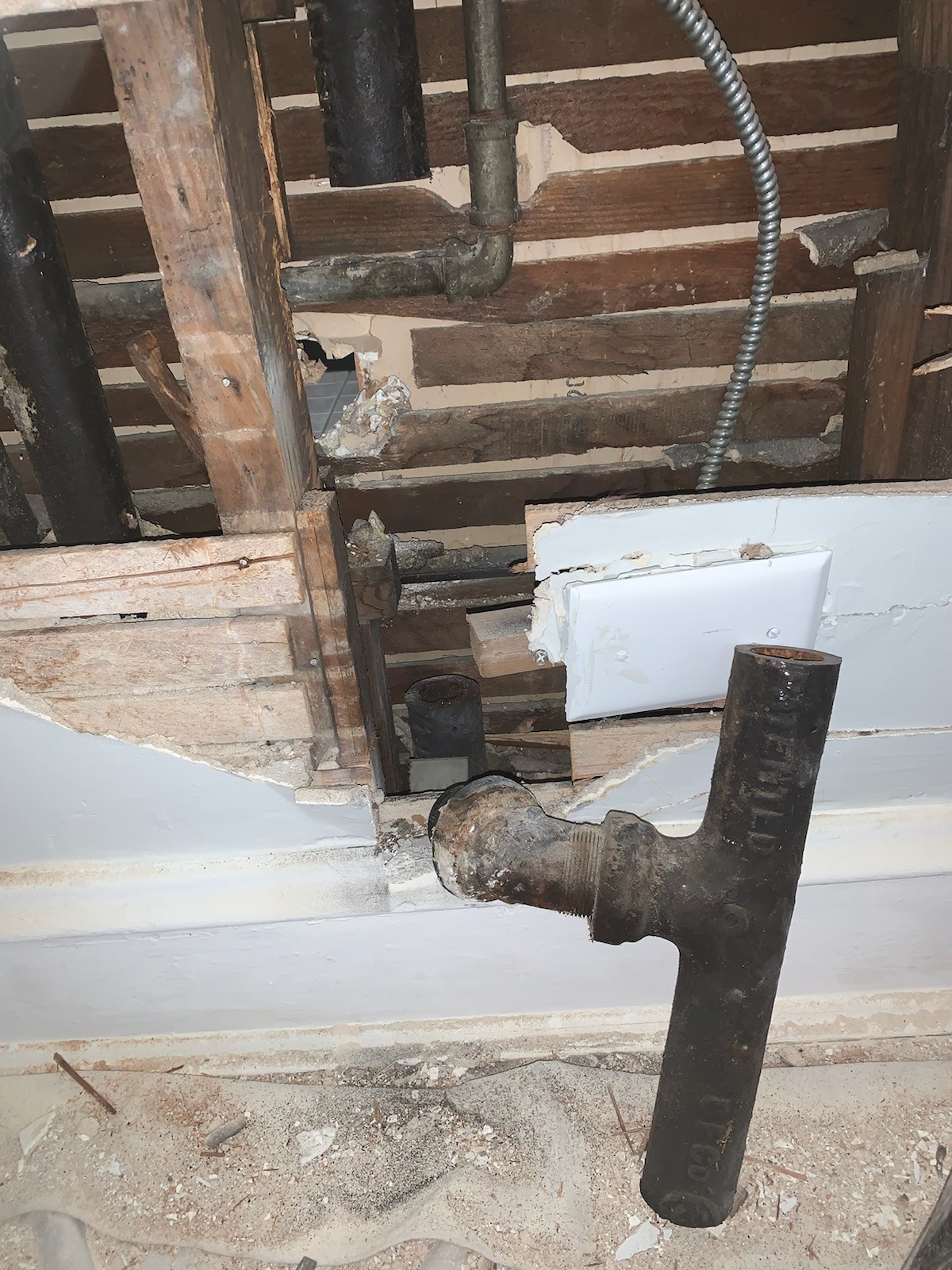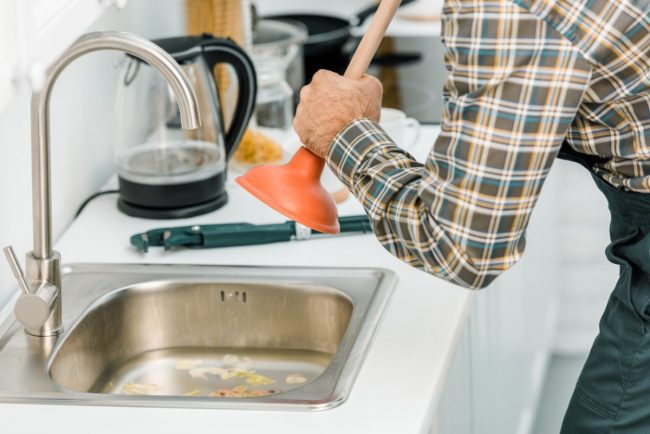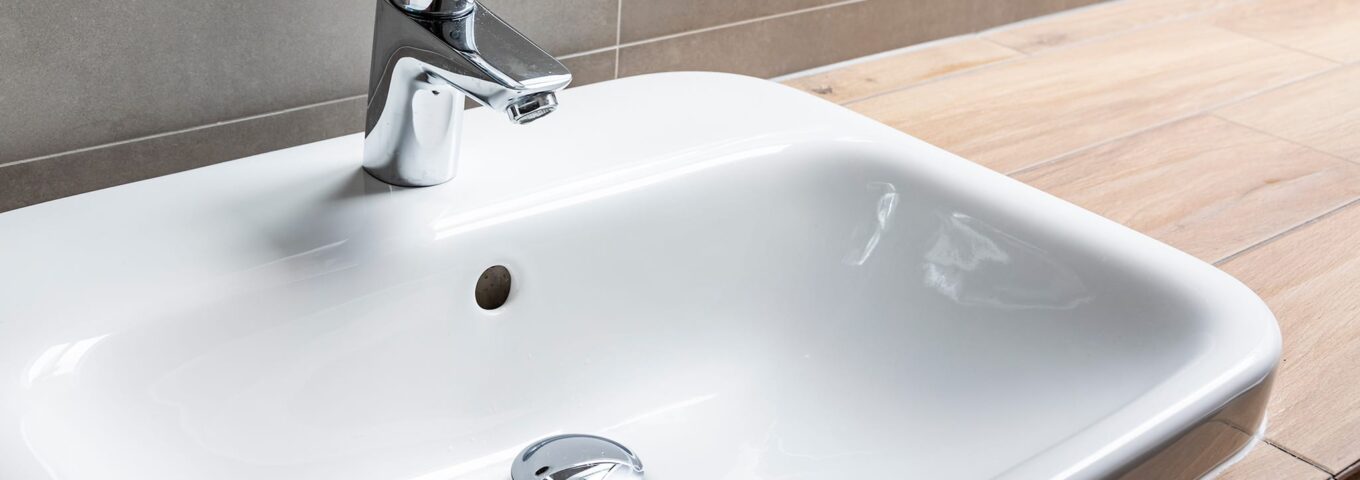Unclog Your Kitchen Sink Drain
If you've ever dealt with a clogged kitchen sink, you know how frustrating it can be. Not only does it disrupt your daily routine, but it can also lead to unpleasant odors and potential water damage if left untreated. But fear not, there are simple and effective ways to unclog your kitchen sink drain and get your sink back to its full functioning state.
How to Unclog a Kitchen Sink Drain
Before you start trying to unclog your kitchen sink, it's important to understand the cause of the clog. Most kitchen sink clogs are caused by a buildup of food particles, grease, and other debris. The first step is to try using a plunger to dislodge the clog. Simply place the plunger over the drain and push down and up repeatedly to create suction. If this doesn't work, you may need to try other methods.
DIY Kitchen Sink Clog Solutions
If the plunger doesn't work, there are several DIY solutions you can try to unclog your kitchen sink. One popular method is using a mixture of baking soda and vinegar. Pour 1/2 cup of baking soda down the drain, followed by 1/2 cup of vinegar. Let it sit for 15-20 minutes and then pour hot water down the drain to flush it out. You can also try using a plumbing snake or a wire hanger to physically remove the clog.
Best Kitchen Sink Clog Remedy
For tough clogs, the best remedy may be a chemical drain cleaner. These products are designed to dissolve and break up clogs, but they can also be harsh on your pipes. It's important to use these products carefully and follow the instructions on the label. Another option is to use a natural drain cleaner made with enzymes, which are safer for your pipes and the environment.
Clearing a Clogged Kitchen Sink
If you're dealing with a particularly stubborn clog, you may need to remove the P-trap under your sink to clear it out. This is the curved pipe that connects your sink to the main drainage pipe. Place a bucket under the P-trap to catch any water and debris, then use a wrench to loosen the nuts and remove the pipe. Clean out any clogs and reattach the P-trap.
Kitchen Sink Clog Prevention Tips
Preventing clogs in the first place is the best solution. To avoid future clogs, make sure to properly dispose of food scraps and grease. You can also use a drain strainer to catch any debris before it goes down the drain. Regularly pouring hot water down your drain can also help prevent clogs by flushing away any buildup.
Natural Kitchen Sink Clog Solutions
If you prefer to use natural solutions, there are several options for unclogging your kitchen sink. Lemon juice and salt can be combined to create a powerful cleaner that can help dissolve clogs. You can also use a combination of salt and baking soda, or a mixture of salt and cream of tartar. These natural solutions may take longer to work, but they are safer for your pipes and the environment.
Quick Fixes for a Clogged Kitchen Sink
If you're in a pinch and need a quick fix for a clogged kitchen sink, there are a few tricks you can try. Boiling water can sometimes do the trick, especially if the clog is caused by grease. You can also try using a wet/dry vacuum to suck out the clog. And if all else fails, you can call a professional plumber to take care of the clog for you.
Professional Kitchen Sink Clog Solutions
If none of the DIY methods work, it's time to call in the professionals. Plumbers have specialized tools and equipment that can effectively remove even the toughest clogs. They can also perform a thorough inspection of your pipes to identify any underlying issues that may be causing the clogs.
Common Causes of a Clogged Kitchen Sink
Understanding the common causes of a clogged kitchen sink can help you prevent future clogs. As mentioned earlier, food particles, grease, and other debris are the main culprits. However, other factors such as a faulty garbage disposal, old pipes, or tree roots infiltrating your pipes can also lead to clogs. By being mindful of what you put down your drain and regularly maintaining your plumbing, you can avoid future clogs and keep your kitchen sink functioning properly.
In conclusion, a clogged kitchen sink may seem like a daunting problem, but with the right knowledge and tools, it can be easily remedied. Whether you choose to tackle the clog yourself or call in a professional, it's important to address the issue promptly to avoid further damage and inconvenience. By following these tips and incorporating preventative measures, you can keep your kitchen sink running smoothly and avoid future clogs.
Introducing the Perfect Solution to Your Clogged Kitchen Sink

Are you tired of dealing with a clogged kitchen sink? Do you find yourself constantly reaching for the plunger or pouring harsh chemicals down the drain? Don't worry, you're not alone. A clogged sink is a common household problem that can be frustrating and time-consuming to fix. But fear not, we have the perfect solution for you.
 There are many reasons why your kitchen sink might become clogged. From food scraps and grease buildup to foreign objects and tree roots invading your pipes, it can be difficult to pinpoint the exact cause. But one thing is for sure, a clogged kitchen sink can disrupt your daily routine and make cooking and cleaning a hassle.
So what is the solution?
The answer is simple: a drain snake. This handy tool is a must-have for any homeowner and can save you from the headache of dealing with a clogged sink. A drain snake, also known as a plumbing snake or a drain auger, is a long, flexible coil that can be inserted into your drain to break up and remove any blockages.
Using a drain snake is easy and doesn't require any special skills or knowledge. Simply insert the snake into the drain and rotate it while pushing it further in. The snake will grab onto any debris or buildup and pull it out, leaving your drain clear and free-flowing.
But why choose a drain snake over other methods?
Unlike chemical drain cleaners, which can be harmful to your pipes and the environment, a drain snake is a safe and eco-friendly option. It also eliminates the need for harsh chemicals and repeated plunging, which can be messy and ineffective.
Another advantage of using a drain snake is that it can reach deep into your pipes and remove blockages that are not easily accessible. This means you can say goodbye to recurring clogs and the need for expensive plumbing services.
In addition to its effectiveness and ease of use, a drain snake is also a cost-effective solution. While chemical drain cleaners and professional plumbing services can add up over time, a drain snake is a one-time investment that will save you money in the long run.
Don't let a clogged kitchen sink disrupt your daily routine any longer.
Invest in a drain snake and say goodbye to clogs for good. With this simple yet effective tool, you can keep your kitchen sink clear and save yourself the time and hassle of dealing with a clogged drain. Trust us, your future self will thank you.
There are many reasons why your kitchen sink might become clogged. From food scraps and grease buildup to foreign objects and tree roots invading your pipes, it can be difficult to pinpoint the exact cause. But one thing is for sure, a clogged kitchen sink can disrupt your daily routine and make cooking and cleaning a hassle.
So what is the solution?
The answer is simple: a drain snake. This handy tool is a must-have for any homeowner and can save you from the headache of dealing with a clogged sink. A drain snake, also known as a plumbing snake or a drain auger, is a long, flexible coil that can be inserted into your drain to break up and remove any blockages.
Using a drain snake is easy and doesn't require any special skills or knowledge. Simply insert the snake into the drain and rotate it while pushing it further in. The snake will grab onto any debris or buildup and pull it out, leaving your drain clear and free-flowing.
But why choose a drain snake over other methods?
Unlike chemical drain cleaners, which can be harmful to your pipes and the environment, a drain snake is a safe and eco-friendly option. It also eliminates the need for harsh chemicals and repeated plunging, which can be messy and ineffective.
Another advantage of using a drain snake is that it can reach deep into your pipes and remove blockages that are not easily accessible. This means you can say goodbye to recurring clogs and the need for expensive plumbing services.
In addition to its effectiveness and ease of use, a drain snake is also a cost-effective solution. While chemical drain cleaners and professional plumbing services can add up over time, a drain snake is a one-time investment that will save you money in the long run.
Don't let a clogged kitchen sink disrupt your daily routine any longer.
Invest in a drain snake and say goodbye to clogs for good. With this simple yet effective tool, you can keep your kitchen sink clear and save yourself the time and hassle of dealing with a clogged drain. Trust us, your future self will thank you.













:max_bytes(150000):strip_icc()/freshen-and-unclog-drain-with-baking-soda-1900466-22-bbf940b70afa4d5abef0c54da23b1d3f.jpg)





















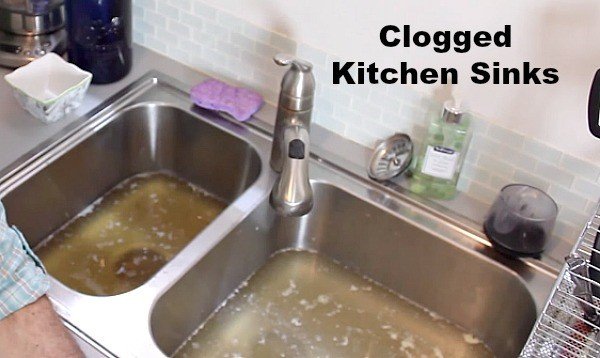


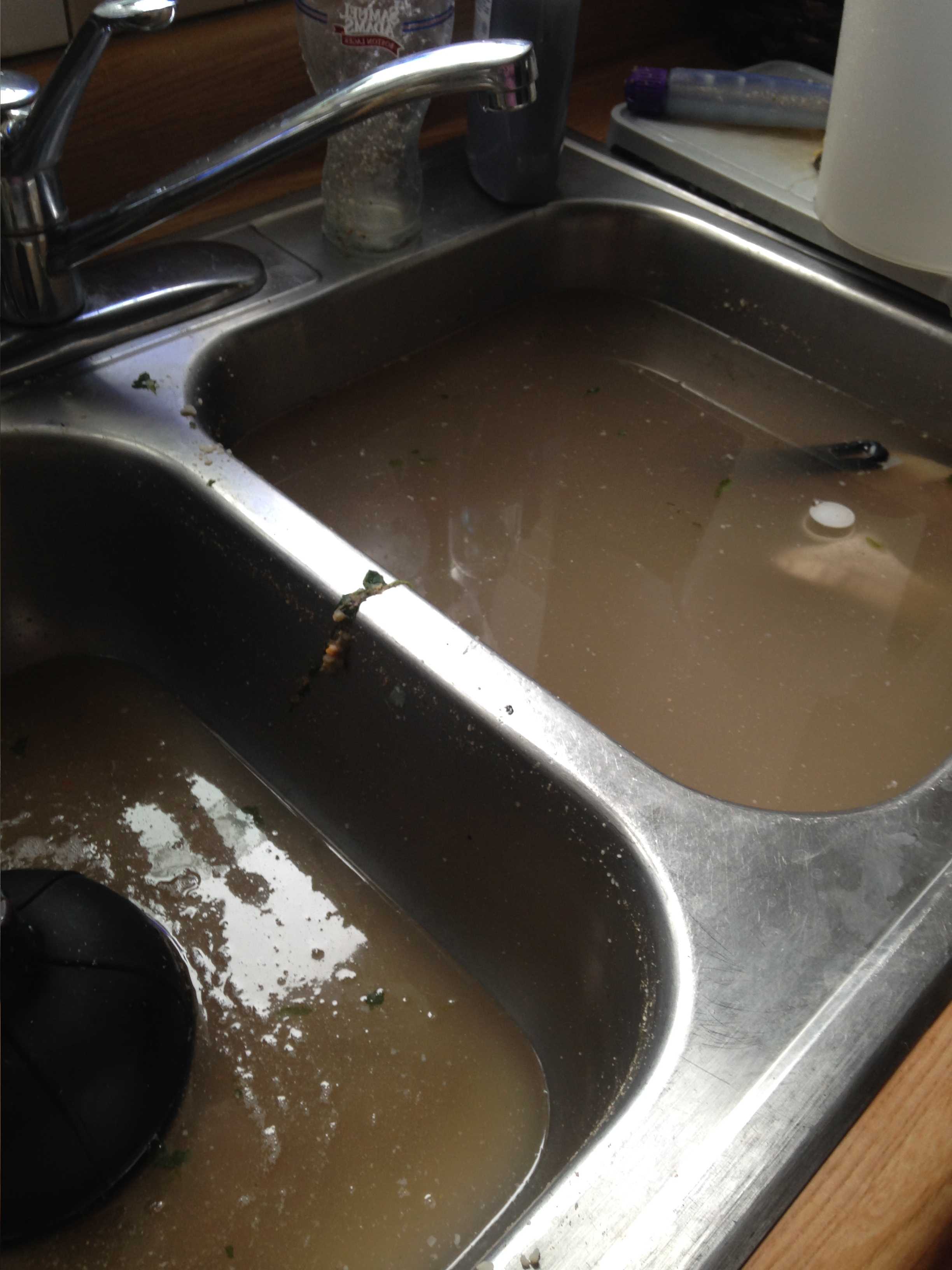
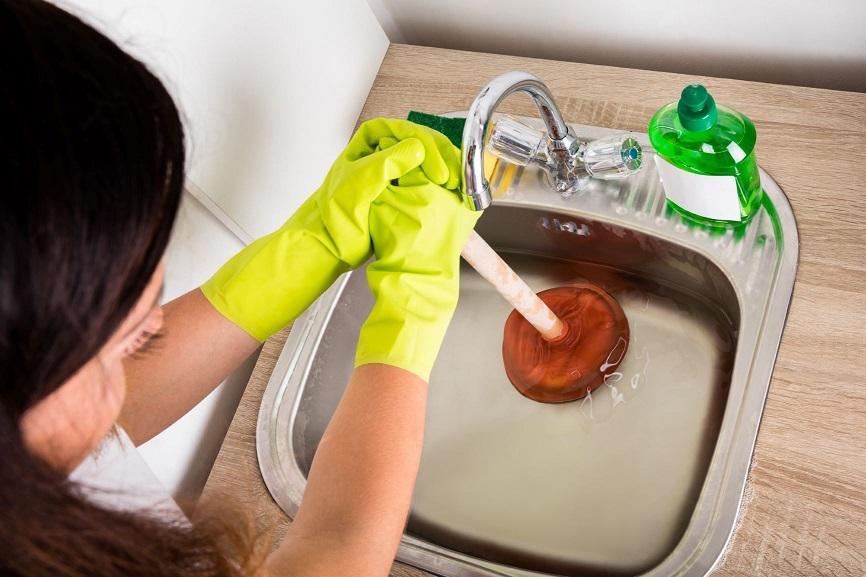


:max_bytes(150000):strip_icc()/how-to-unclog-a-kitchen-sink-2718799_sketch_FINAL-8c5caa805a69493ab22dfb537c72a1b7.png)



